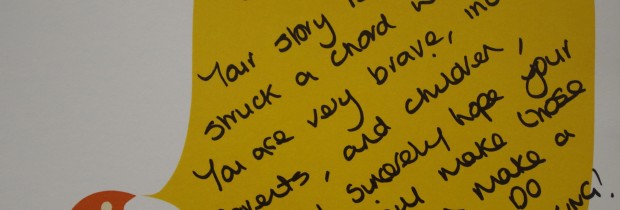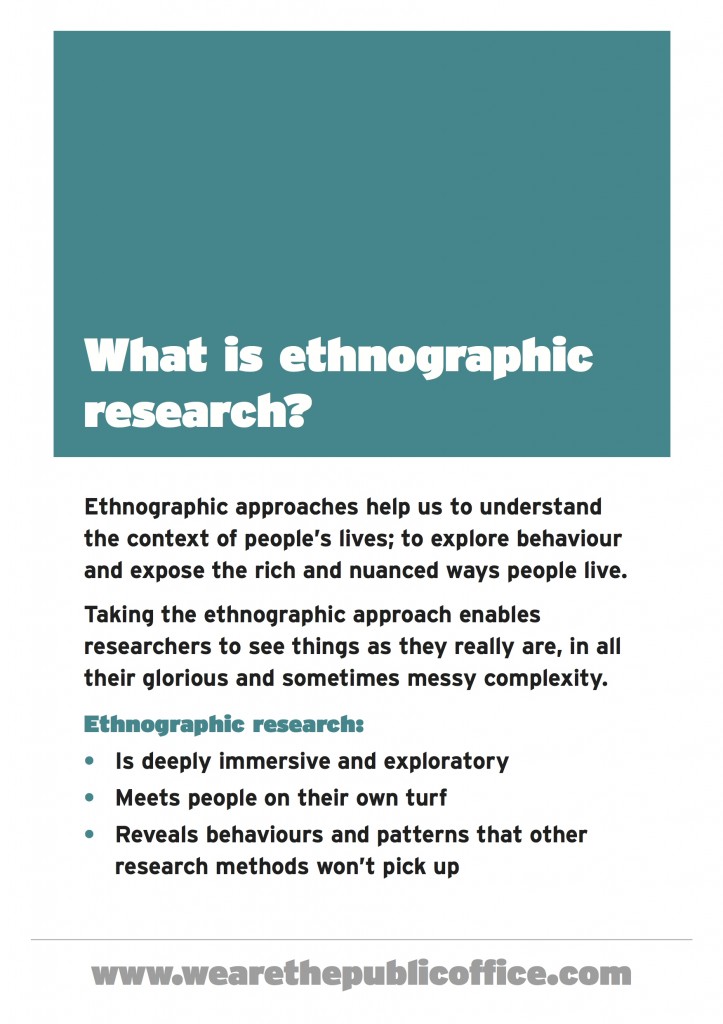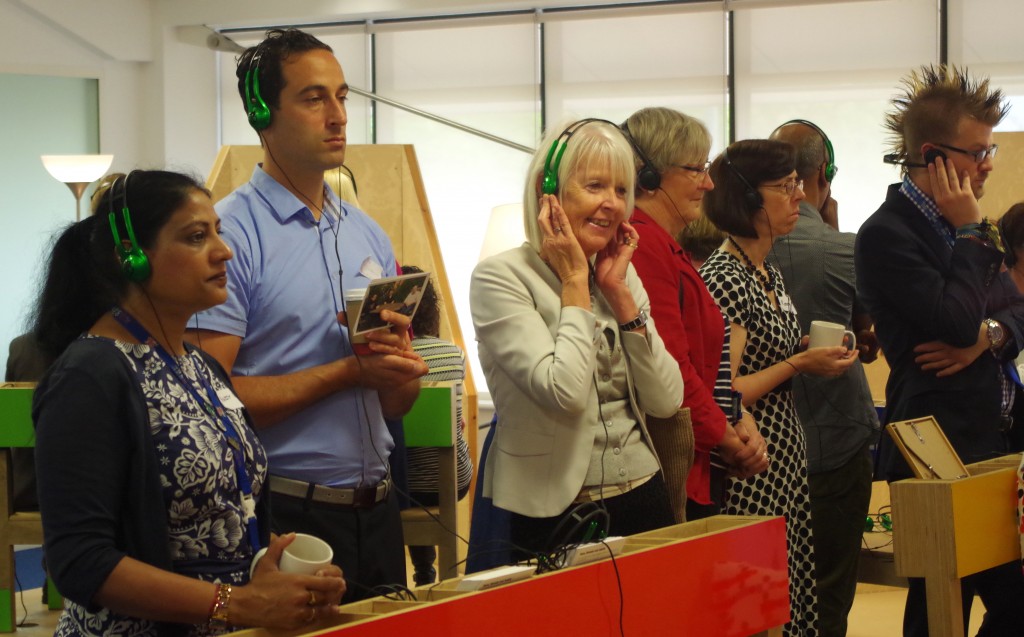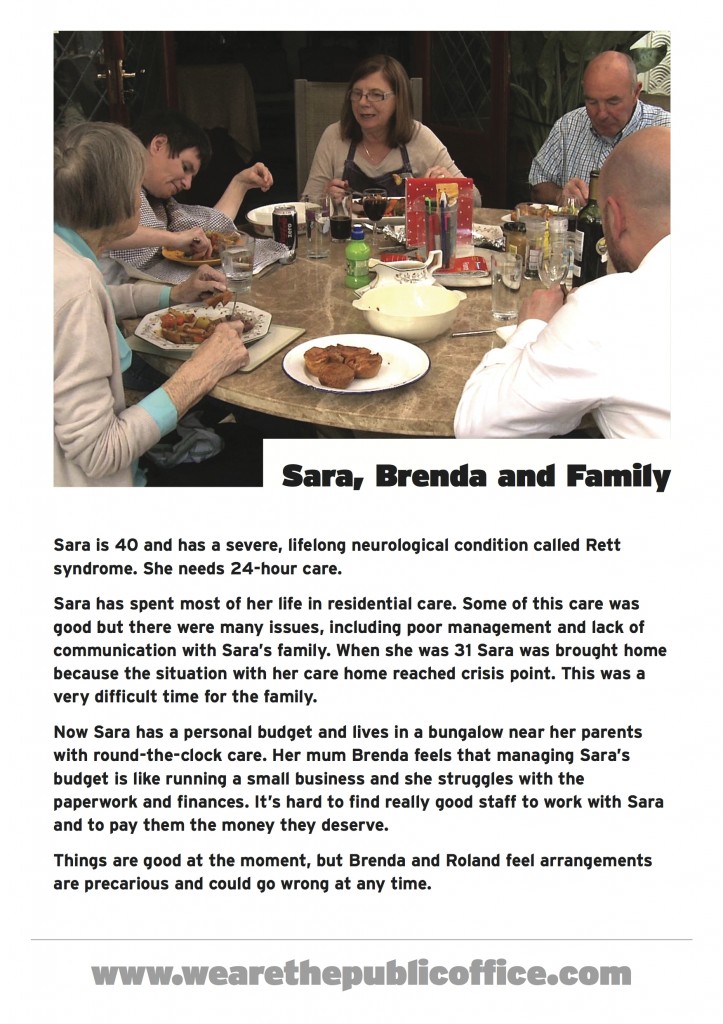Prepare to be moved: the undeniable power of ethnographic approaches
For us, listening (and really hearing) what people have to say about their lives and the public services they use is at the very heart of what we do. It’s one of the approaches we believe is right and necessary if we are going to change how organisations and professionals see the world, and consequently improve it.
Since the early days of ThePublicOffice installation in 2007 we have tried hard to find compelling, memorable and fun ways to tell stories, and it is stories about people that are very often the starting point for the work we do. When organisations come to us saying they want to deliver better services or improved outcomes for citizens, we let them know (insist) that they get the people who design and deliver those services to understand what it’s really like to be on the receiving end.
We need them to connect emotionally with the people they are seeking to serve; to empathise. We do that through ethnography.
In ThePublicOffice workshops that often kick off a new programme of work with a client, we create spaces for leaders, elected members, frontline workers and colleagues from across the third and private sectors to quietly and individually watch and listen to specially created ethnographic films about real families’ experiences of services. Over the years we have worked with Postcode Films to create a bank of these stories that each tell a personal account of a citizen or family’s struggle to make public services work for them. The stories reveal the significant tenacity and capacity citizens have, yet how much of their energy and time is wasted navigating systems and services that simply haven’t been designed with their needs in mind.
In Essex County Council leaders are committed to the power of ethnography and are starting to use it across the system to inform and shape commissioning decisions. They want to ensure that all their work is informed by a deep understanding of the reality of people’s lives. Significantly, they are finding that gathering colleagues from across different departments (and indeed across organisations, such as the local authority, the CCGs, the Police etc) to listen to compelling ethnographic stories provides an arresting and challenging shared experience, quickly undermining professional silos. What emerges are common perspectives on the nature of the problem(s), and powerful commitments to changing things for the better, collaboratively.
We have recently commissioned two new family films to support the work we are doing with those delivering services for working age adults with disabilities in Essex. We met Sara and her mum Brenda, who told us that:
“I get no advice. There is no one from social services I can go to and say ‘this is my problem, how do I resolve it?’ I’m an outsider, I don’t work for social services, so why should they help? That’s basically the reaction I get. I feel let down because I do my best to ensure it’s cost effective for them, but they do nothing to support me.”
And, in the Essex early years system, powerful ethnographic research undertaken in partnership with ESRO has revealed new insights about the way that families with young children are living their lives and engaging with services. We have learnt that whilst there are lots of early years services on offer, many of these are understood by parents to be ‘activities for children’; few services seem to be successfully building parenting skill and confidence, and supporting what goes on in the home. We also found a surprising and deep sense of isolation and loneliness amongst many parents of young children. This is causing us to explore whether some parents need help to create and maintain their own networks of support, not necessarily lots of new ‘formal’ services or provision.
Dave Hill, Executive Director for People Commissioning, talks about the purpose and value of ethnography like this:
“Traditionally we will have run focus groups, done surveys, we will have asked people directly what they think. Ethnography is about getting right underneath the skin of people’s real life stories. What are their insights? What innovations have they got? Might they even be part of the solution to the problem? We’re really interested in pursuing the whole process of commissioning in a much more transparent, much more open way.”
On a personal level in team PublicOffice, we each continue to be moved and inspired by the stories of individuals and families we connect with. If that ever stops, we’ll be worried.



